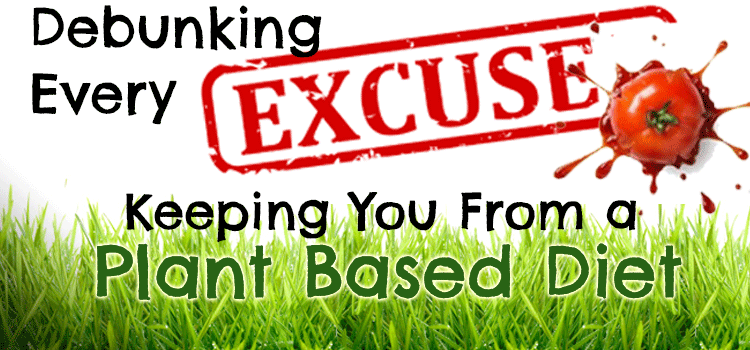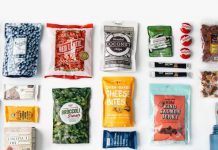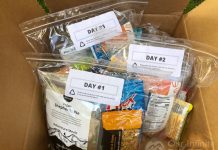

Stop with the excuses! The livestock industry is terrible for our planet and our health. I’ve talked with many carnivores who have considered giving vegetarianism a try and know it’s a good idea and would be better for them and the planet, BUT…. there’s always a “but”. So here you go – every misconception and excuse I’ve heard as to why someone doesn’t adopt a plant based diet and an explanation debunking all of them. Stop making excuses and take ahold of your health and the wellbeing of this planet.
I won’t get enough protein
There’s protein in plants! With the traditional Western diet, the average American consumes about double the protein their body actually needs. This is bad! Diets that are too high in protein have negative consequences for your body and can be harmful. The recommended amount of protein for the average adult is 0.8 grams per kilogram of body weight. To figure out what that means, take your body weight (in pounds) x 0.36 = recommended protein intake (in grams), or use the USDA’s protein calculator here.
To put that into perspective, here are some healthy protein sources that are from plants (Source: PMRC) and don’t have the high levels of saturated fat that meat does:
- Black beans (1 cup) – 15.2 grams
- Broccoli (1 cup) – 4.6 grams
- Chickpeas (1 cup) – 14.5 grams
- Lentils (1 cup) – 17.9 grams
- Peanut butter (2 tablespoons) – 8.0 grams
- Quinoa (1 cup) – 11.0 grams
- Seitan (4 ounces) – 24.0 grams
- Spinach(1 cup) – 5.4 grams
- Tempeh (1 cup) – 31.4 grams
- Tofu (1 cup) – 39.8 grams
- Whole-wheat bread (one slice) – 2.7 grams
So for me, I could eat a cup of tofu with 2Tbs of peanut butter and I’ve more than hit my daily protein requirements for the day. Pretty easy!
I won’t get enough calcium
There is more calcium in broccoli than there is in milk. Yup, that’s right – pound for pound, broccoli wins when it comes to calcium… milk just has a really good advertising campaign behind it. And broccoli isn’t the only plant – kale and cabbage too. Plus, if you’re going vegetarian, that means you can still drink milk (even tho it’s not the best way to get calcium). Other non-dairy foods high in calcium are almonds, edamame, figs, oranges and more!
I won’t get enough iron
Again broccoli and kale are the big winners here – chock full of all sorts of iron! Squashes, brussel sprouts, asparagus, carrots, cucumber, green beans are all great sources as well. PLUS when eating these foods as opposed to meat, you’re also getting a bunch of Vitamin C, which aids your body in the absorption of iron, so you’re actually getting even more bang for your buck than if you were eating a steak.
There are important nutritious things in meat that you can’t get from plants.
There is only one thing that the human body needs that is difficult to get from plants – difficult, but not impossible. That is Vitamin B12. B12 is an essential vitamin that our bodies need to function properly. It helps keep nerve and blood cells healthy and helps prevent megaloblastic anemia (feeling tired or weak). The highest concentration of B12 comes from sea foods; specifically clams, oysters, and mussels; but it is also present in lower amounts in dairy and egg products as well (which vegetarians still eat). B12 is only found in trace amounts in fruits and vegetables and there is only one plant that has consistently been shown to register B12 activity in humans, which is chlorella. So unless you want to make sure that you’re eating 3 grams of chlorella each day to get the recommended amount of B12, then a vegetarian (and especially vegans), needs to eat plants that have been B12 fortified or take a B12 supplement.
Humans have canines and are meant to be carnivores
Have you looked at our canines? I know zombie movies are all the rage and everything, but our canines really aren’t that great for tearing into and devouring flesh. Almost all mammals have canines – even hippos have giant ones and they only eat plants. If you actually compare our physiology to that of a carnivore, it’s very different:
Traits of a carnivore:
|
Traits of a humans (and other plant eaters):
|
It’s too expensive
According to The Journal of Hunger & Environmental Nutrition, a vegetarian diet can actually save you about $750 a year on groceries. The study compared a government recommended meal plan, which included meat to a similar meal plan with plant-based foods. The prices for the ingredients in these recipes were based on the cheapest brands available at Stop & Stop and on a 2,000 calorie diet. The meat-eating diet ended up costing $14.36 more per week than the vegetarian one AND the vegetarian diet had about 25 more servings of vegetables, 14 more servings of whole grains, and eight more servings of fruit per week. Costs less and is better for you. This isn’t even beginning to touch on the money you’re saving on potential medical bills by being healthier, avoiding diseases like heart disease and high cholesterol, and thus pricey medications.
It’s inconvenient and too much work
Did you know that Burger King has a veggie burger? It’s actually not bad too. And Subway has a veggie patty-thing too… it’s not great, but it exists. While these are terrible and full of all sorts of other bad unhealthy stuff, it still goes to show how you can get vegetarian food almost anywhere. Yes, they might have looked at me funny in Tennessee when I asked for no bacon with my eggs, but it was still possible. And if you’re more referring to cooking at home, it’s really not much different – find a recipe and follow it, or order from a vegetarian food delivery service like Purple Carrot. You just have to change your mind set. Instead of chicken, use seitan. I just made a vegan lentil “meatloaf” the other day and it was great! There is a little big of a learning curve as you discover these new foods you probably didn’t eat before and how to cook with them, but it’s pretty easy to get the hang of it!
I don’t want to only eat salads
Eating only salads would be really boring and unhealthy. There are SO many other options for vegetarian foods other than just lettuce and a few veggies. You need to have a wide variety of types of foods in your diet such as beans, nuts, fruits, seeds, leafy greens, vegetables, etc. One of the great things that I’ve really enjoyed is that cutting meat out of your diet opens you up to explore and find other foods that you usually wouldn’t have gone looking for. It forces you to be more creative and to really understand the food you’re putting into your body rather than just what we’ve been programmed to eat. I never ate quinoa or seitan before, but now that I have, I don’t want to go back.
I’ll loose weight
Not necessarily. You can be a vegetarian and still have a terrible diet. Candies, pastas, cereals, etc. are all vegetarian. If you are only eating these high-sugar carb-based foods without eating vegetables, beans, seeds, fruits, etc. you won’t improve your health and will in fact likely gain weight. I didn’t loose any weight when I made the switch.
I won’t be able to gain muscle
Kendrick Farris, who is the only male weightlifter from Team USA to qualify for the Rio Olympics, is vegan. I think that’s pretty much all I need to say about that… but in case you’re still not convinced, how about these guys:


All vegan, won 32 medals (22 of which were for first place) at the Naturally Fit Games in Austin. Sure, they’re extreme examples and spend all day every day working on their bodies, but if they can do it to this extreme just like any other meat-eater would, then you can too. It just takes a little research to educate yourself about your options.
I just love eating meat
Well, at least you’re honest. Ultimately this is really the biggest reason why most people won’t give it a try. They are addicted to meat and just don’t want to. Eating meat is pleasurable, it tastes good, but that taste comes at a price, not just to yourself, but to the planet. It does take a little for your body and your taste buds to adjust when you first give it up, but just like people who quit smoking and then can’t stand the smell of it, once you’ve re-conditioned yourself, you don’t be able to go back. So before dismissing a plant based diet just because meat is tasty, consider the following:
- Animal agriculture is responsible for 18% of all greenhouse gas emissions — more than the exhaust from all transportation combined
- By 2050, there will be a projected 80% increase in global greenhouse gas emissions from animal agriculture
- More than half of all water consumed in the U.S. is used for animal agriculture. It takes about 460 gallons of water to produce just one quarter pound hamburger.
- Livestock covers 45% of the Earth’s total land. One and a half acres of land can produce 375 pounds of meat, or 37,000 pounds of plant food…. who wants to stop world hunger?
- Every minute, 7 million pounds of excrement are produced by animals raised for food in the U.S.
- Animal agriculture is responsible for up to 91% of Amazon destruction.
Even if this hasn’t convinced you to give up meat completely, please at minimum just cut down on your consumption. One person really can make a difference. One person can save 162,486 gallons of water annually just by cutting burgers, bacon, and nuggets out of their diet. Imagine what a positive impact this would have on the world if even every one in three meat eaters started doing that.
Add your excuse to the comments and I’ll debunk it for you!








